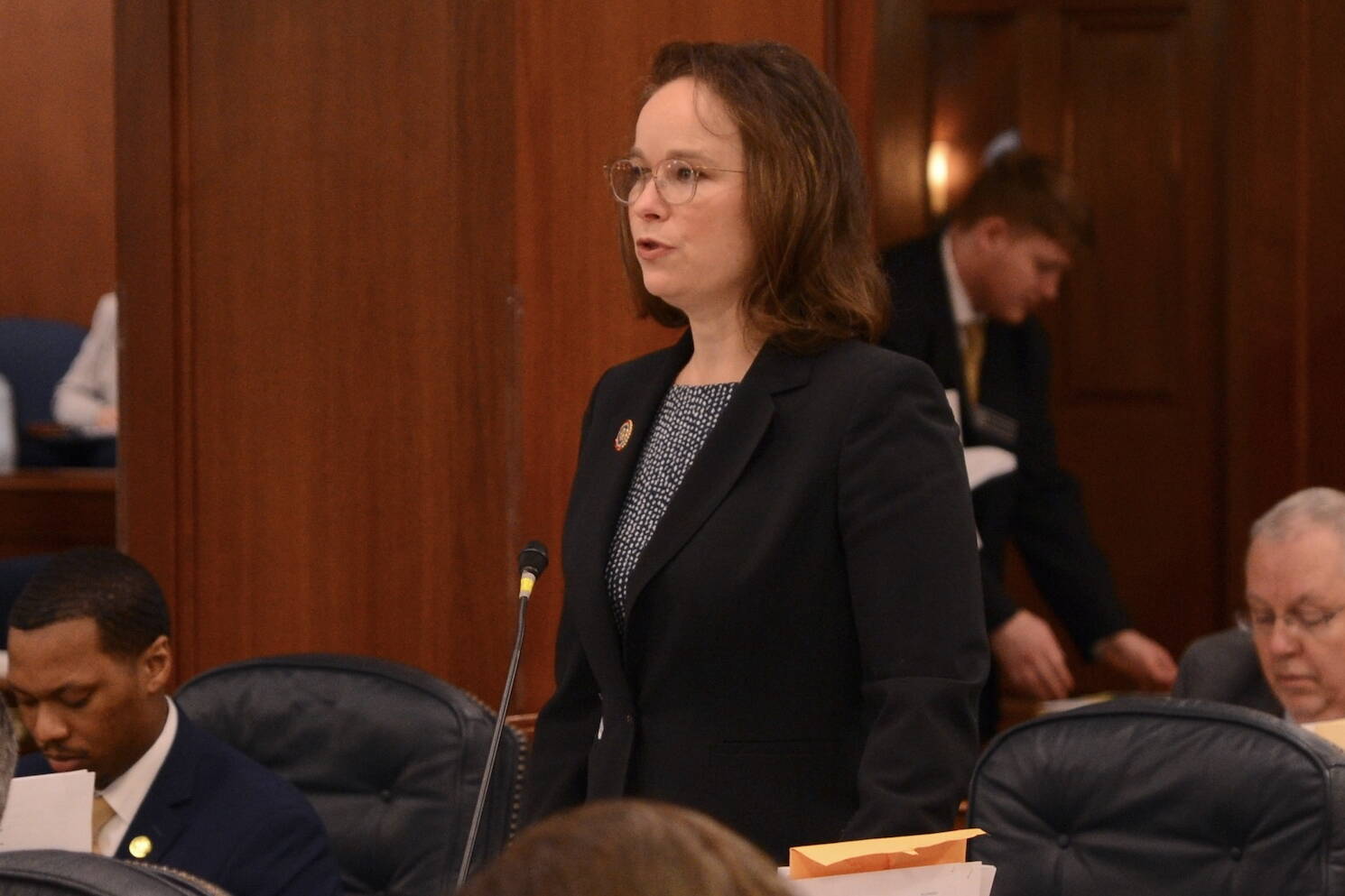Rep. Sarah Vance, R-Homer, with Rep. Jamie Allard, R-Eagle River, in their respective roles as chair and vice chair of the Alaska State House Judiciary Committee, introduced a constitutional amendment, House Joint Resolution 28, in response to the Superior Court ruling on April 12 that invalidated education funding for correspondence program students across the state, according to an April 18 State Legislature press release.
HJR 28 was heard by the House Judiciary Committee on Wednesday, April 24. The committee is scheduled to continue hearings on the proposed amendment on Friday, April 26.
On April 12, Superior Court Judge Adolf Zeman struck down Alaska Statute 14.03.300 and 14.03.310, originally passed in 2014 to build upon the state’s existing correspondence study program, as “violative of the Alaska Constitution,” an April 15 letter from Alaska Department of Education and Early Development Commissioner Deena Bishop to Alaska school district superintendents stated.
According to Bishop’s letter, AS 14.03.300 states that a correspondence study program will each year provide an “individual learning plan” for each student and sets out certain requirements for an individual learning plan. AS 14.03.310 describes a student allotment program “through which a parent or guardian of a student in a correspondence study program may be provided with an annual allotment to ‘purchase nonsectarian services and materials from a public, private, or religious organization’ so long as the services and materials are required under the individual learning plan and the textbooks, services, and other curriculum material are approved by the school district, aligned with state standards, and meet other specific requirements.”
Zeman’s decision “focused on the ability to use allotments to purchase materials and services from a private or religious organization” and whether that violated Alaska Constitution Article VII, section 1 which “prohibits the expenditure of public funds for the direct benefit of any religious or other private educational institution,” Bishop wrote.
HJR 28 “aims to eliminate the language in the Alaska Constitution cited by the Superior Court in its decision, a decision which appears to violate the First Amendment rights of Alaskan students and parents under current Supreme Court precedent,” the State Legislature release states.
More than 22,000 students are currently enrolled in correspondence programs in Alaska, according to Bishop. If left unaddressed, the Superior Court decision “could have far-reaching implications for education funding across the state, jeopardizing a variety of programs” that involve partnerships with private institutions or organizations, the release states.
Vance stated in the release that the proposed constitutional amendment “seeks to bring Alaska’s constitution in line with the U.S. Constitution by allowing public funds to benefit all Alaskans seeking educational opportunities … promot(ing) fairness and empower(ing) choice in education.”
Vance did not respond to further inquiries for comment.
If the proposed amendment is passed by a two-thirds vote in both the Senate and the House, it will be presented to voters in the upcoming general election, according to the release.
Find the proposed amendment in full at www.akleg.gov/PDF/33/Bills/HJR028A.PDF.
For more information, contact Rep. Vance’s office at 907-465-2689 or rep.sarah.vance@akleg.gov, or contact Vance’s Chief of Staff Jake Almeida at jake.almeida@akleg.gov.


